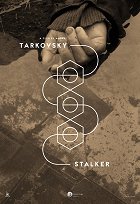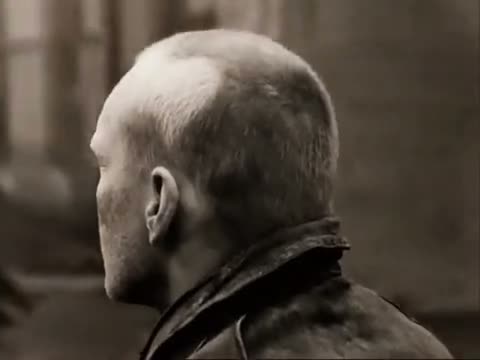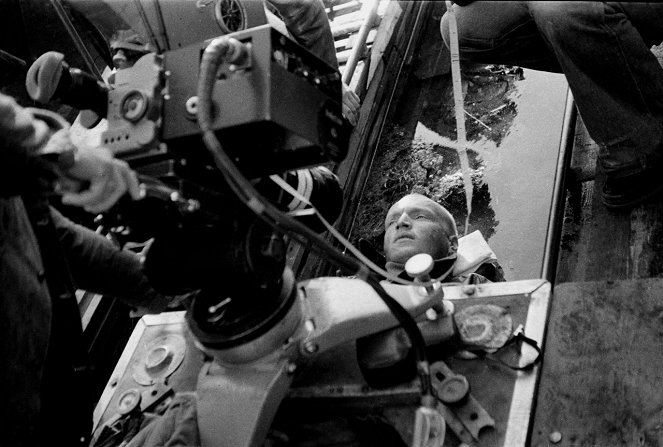Rendező:
Andrei Arsenyevich TarkovskyZeneszerző:
Eduard ArtemyevSzereplők:
Aleksandr Kaydanovskiy, Anatoly Solonitsyn, Nikolay Grinko, Alisa Freyndlikh, Natasha Abramova, Faime Jurno, Ye. Kostin, R. Rendi, Sergey Yakovlev (több)Tartalmak(1)
Két férfi, a tudós és az író a vezetőjük segítségével a titokzatos és tiltott területre utazik az orosz vadonba. A rejtélyes Zónában semmi sem az, aminek látszik. A tárgyak egyik helyről a másikra vándorolnak, a tájak elmosódnak, átrendeződnek. Úgy tűnik, mintha egy ismeretlen intelligencia meghiúsítana minden kísérletet, hogy behatoljanak a területére. A szóbeszéd szerint, akinek ez mégis sikerül, annak megváltozik az élete, titkos vágyai teljesülnek. Borisz és Arkagyij Sztrugackij regényéből. (Cinemax)
(több)Videók (3)
Recenziók (9)
Yesterday, I embarked on a journey to space with Andrei Tarkovsky. Today we didn’t leave Earth, but it was still an almost three-hour ride. Well, a ride... Again, there was a great deal of philosophizing, and long, long shots in which nothing at all happened, and on which Agnieszka Holland probably based her film I, Olga Hepnarova. There was a lot of wandering through the countryside, throwing nuts and, gradually, the feeling of being robbed of three hours of my life was coming over me again. As far as Mr. Tarkovsky is concerned, I’m not going to make the same mistake for the third time. I guess I’m just not mentally mature enough for his films.
()
Better is bitter happiness than a boring life. A powerful philosophical work with many metaphors that screams at the viewer throughout its two and a half hour runtime: "Either you will attentively watch me the entire time and get everything, or you will try to watch me as an ordinary disposable product and get nothing." The sea of Tarkovsky's thoughts, supported by minimalist and mystical music and wonderfully detailed camera work, brought me an unprecedented viewer experience and one of the most intellectually stimulating films of my life.
()
This is a paradox. Stalker is now a cinematic concept that everyone watches in a dogged attempt to understand its message and to fit each abstract shot into an imaginary mental puzzle. However, the more we know and think about the film, the more confused we get and end up knowing nothing; and to be honest, it’s better that way. You should keep your brain active, because you won't see so much cinematic beauty, visual art and extremely dense atmosphere anywhere else, but it's really better to let yourself be absorbed and sucked into the Zone than to try to shape and twist it to your will. For me personally, one of the weirdest, most interesting and most moving cinematic experiences ever. And yes, I want to watch it again, several times...
()
Stalker was the last film that Tarkovsky shot in the Soviet Union, as usual after a series of obstacles from the authorities, in addition to using inferior film material. The greater the obstacles from the Soviet authorities, the greater the informal prestige enjoyed by Tarkovsky from intellectuals and other filmmakers. He chose the novel "Roadside Picnic" by Arkady and Boris Strugatsky as the source material, which was published in the 70s. It is one of the most important works by these authors and one of the fundamental works of science fiction that shaped my reading profile. The collaboration between Tarkovsky and the Strugatsky brothers was very difficult because Tarkovsky was a unique and stubborn artist who did not recognize compromises and had a significantly different idea of the final form of the film compared to the brothers as the scriptwriters. He perfectly stripped almost all the motifs of the sci-fi genre from the film, which is a demanding philosophical and psychological study of man. The mysterious zone, which has a concrete origin in the novel, serves Tarkovsky as a metaphor for a reminder of recent events in the Soviet Union, namely the existence of the Gulag archipelago and the massive injustice that was taking place on Soviet territory. The shaved head of the Stalker is also a reminder of the prisoners from the Soviet labor camps. As a genre film, Stalker certainly does not work and its classification as science fiction is misleading. Openly speaking, "Roadside Picnic" would deserve a more dignified adaptation for the big screen from this perspective. The Strugatsky brothers were very disappointed with the final form of the film, but Tarkovsky had such exceptional prestige that they did not dare to protest. After all, he left abroad shortly after. Despite the above, it is worth watching Tarkovsky's film because this filmmaker had an exceptional talent for working with images, a refined artistic gift, and could work excellently with the camera. The long several-minute shots may seem boring at first, but when one surrenders to the atmosphere, they will be richly rewarded. As a fan of the Strugatsky brothers, I am not satisfied with the way Stalker turned out, but a viewer who is not a fan of science fiction but rather a more demanding artistic spectacle will enjoy it. Overall impression: 60%.
()
A gem that demands quite a lot from the viewer. Stalker basically transcends the boundaries of the medium, rather than a film, it’s a philosophical composition that you can grasp in any way, and no one can say their interpretation is the right one – or the wrong one, depending on how you look at it.
()



Hirdetés